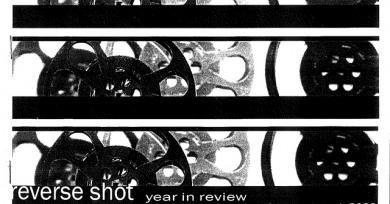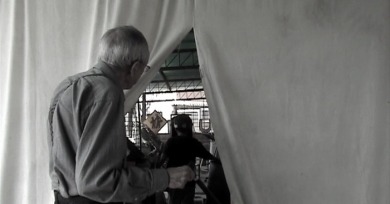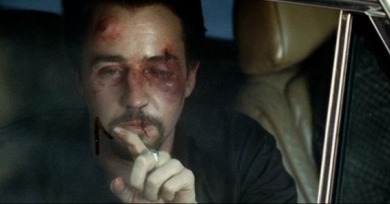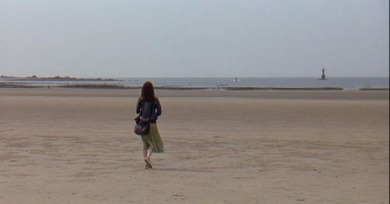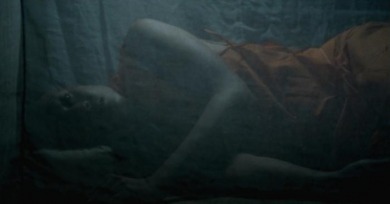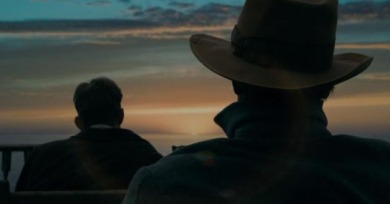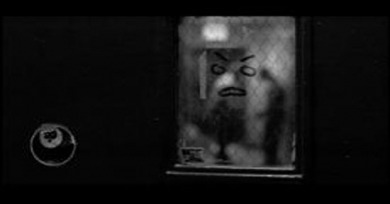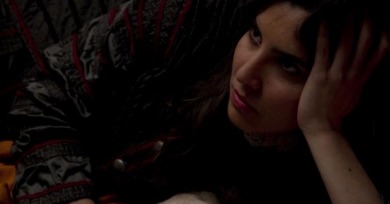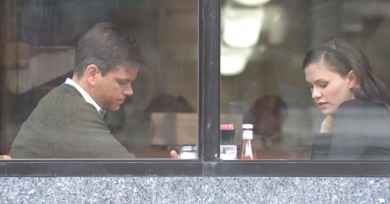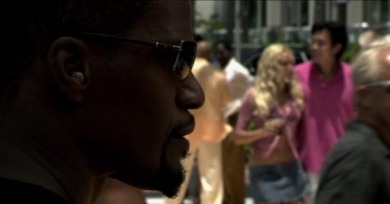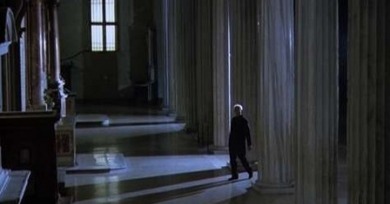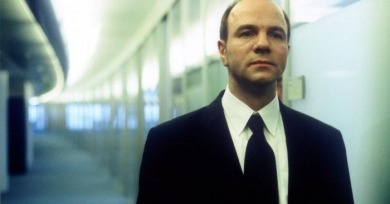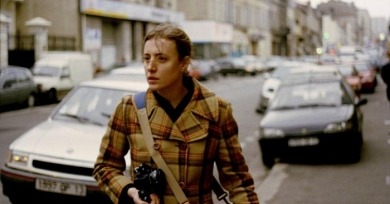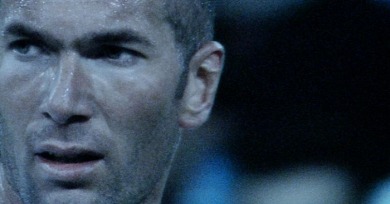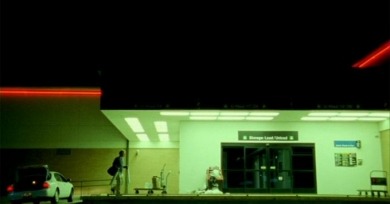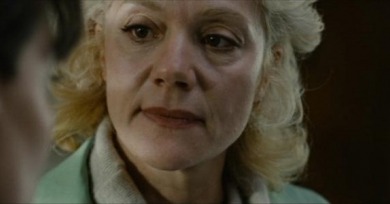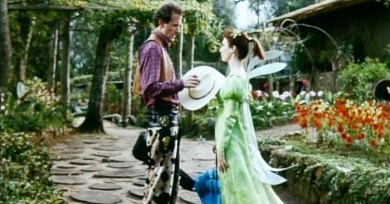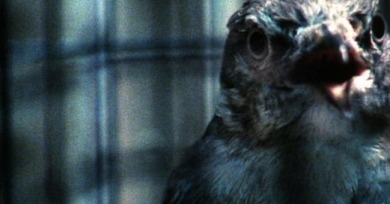The Life of Film
Why is it an important time? Because it’s now. And we’re here. For our tenth-anniversary symposium, then, we want to stand in numbers against the gloom-and-doomers.
We envisioned our publication as a product of a particular culture—that of the “film-as-art journal,” which we knew only as specifically the domain of print—one we might have known was dying around us if only we’d checked our impetuous enthusiasm long enough to pay attention.
In a way that distinguishes them from most works that deal with pre-existing footage, Duque’s work suggests that what continues to define cinema—against a purely iconic, informative mode of visuality—is the way in which it affords us privileged access to lived experience.
Schnack and Wilson’s film implicitly pays homage to Altman’s seventies opus; like Nashville, Strangers is a backstage musical that simultaneously revels in and critiques indigenous cracker-barrel spectaculars, and frames the locale as a microcosm of American history and identity.
Lee isn’t particularly famous for keeping his emotions in check, but if 25th Hour is an angry film, it isn’t caustically so. Here, Lee’s anger isn’t righteous or revelatory; it’s mournful, understanding, and desperate for expression.
The film is like a response to Eliza Doolittle’s lament in My Fair Lady, “Show me!” Unbound by linguistic specificity and emotional or narrative referents, these moments become entry points of limitless meaning into the film.
It is as though Hong wanted here to make a film about reality, but at the same time incorporate the structures that he thinks up within realist expectation, rather than formalist patterning.
In Uncle Boonmee’s world, daily human routines exist in a continuum with the mysteries of reincarnation, cross-species copulation, and the afterlife.
For every predictable move the script makes, the film grows richer and deeper by frustrating our expectations of what a big Hollywood epic is supposed to do in justifying its hero’s significance.
I’m not sure that this feature-length video work from 2005 is about “what happens in it,” not at least in the sense of story or event as movies generally give it to us. It’s something trickier, thornier, a problem more about the movie’s DNA than what it wants to “tell us.”
In lieu of stylistic fireworks or some sort of grand thesis statement, Piñeiro offers us nothing less than a window on extreme beauty, which radiates through the faces of his actresses and the Shakespeare plays that they intermittently recite in a variety of contexts.
Even a cursory glance at our post-millennial cinematic landscape should spark a mental catalogue of our most popular concerns—those of death, decay, and, in light of the medium’s escapist functionality, our total and utter apocalypse.
Even while I worry about Lonergan's cinematic prospects, his film makes me optimistic about the state of the medium. I picked it for this symposium not because I foresee a litter of other Margarets in the future, but because of the happy fact of its existence.
What better visual metaphor for the medium’s demise than those dark skies rapidly approaching, especially if, as some writers do, one equates cinema with celluloid, given that those thunderheads and tornadoes are themselves digitally rendered?
From the moment of its opening salvo, a jarring cut from black to a nightclub interior timed to the first beat of the Jay-Z/Linkin Park mash-up “Numb/Encore,” Vice plunges us deep within an aesthetic all its own, its world of gangland subterfuge and drug-running intrigue painted in streaks of cobalt and grey.
To the Wonder is filled with the sorts of mysteries that not only make Malick’s work indefinably captivating but also instill awe and hope for the future of a medium supposedly in its death throes.
If the primary stuff of narrative is conflict, then The Duchess of Langeais—which tours through a series of nested rooms, carefully unpacking live-wire tensions and eerie doublings—reveals the past as a practically boundless narrative resource.
Old-fashioned theorists might agree that the difference between film and digital is essentially the difference between Beyond the Clouds and Michelangelo’s Gaze: between touching (or failing to touch) a living body and feeling out the contours of a statue.
By concentrating less on the pathological aspects of Vincent’s behavior and more on the crushing weight of the trap of work, the pressures and hypocrisies of which have taken him to the edge, Cantet turns the story into a trenchant plea for liberation from salary servitude.
This is Dvortsevoy’s own great trick, that in making a film about a marginalized culture he has made an entirely universal work of cinema.
Working”—as opposed to such grander appellations as “creating”—seemed to define much of what was most valuable in cinema during the decade.
The simple attribution of political consciousness to a protagonist—as a fact of character, a defining trait among others—felt bracing (and still does) in the face of a national cinema that tacitly encourages the walking of a bipartisan line.
In thinking about a film from the last ten years that gives me hope for the next, I wanted to find some kind of reassurance that, even if most films will soon cease to exist as any kind of physical object altogether, they might still appear, to the future viewer, as dated as any saturated and seamy 35mm print.
The true subject of the film—and of all works of cinema, whether or not they choose to address it—is time. Time elapsed, time remembered, time dictatorial and precious, time watched at 24 frames a second.
It was not until the accident that she began shaping videos in the manner of her art works, assemblages of malleable forms: animal hide, resin, concrete, and, in an extended sense, her own body, the hand broken in three places.
He is director, writer, producer, star, editor, composer, production designer, cameraman—an impossible performance. Cassavetes gone geek, Carruth, in one 77-minute flourish, exploded the boundaries of what was possible for the DIY auteur.
The Headless Woman may not make complete sense when seen as an exemplar of contemporary Latin American, feminist, or queer film; as a major work by a film artist at the height of her powers, though, it may be indispensable.
Paying tribute to the Euro modernism of the past century while forging new modes of storytelling in this one, Gomes (who still shoots on 16mm film) is a maverick, and his anything-goes approach is a pure pleasure to experience.
The whole film insistently complicates and collapses descriptions we traditionally employ to categorize our filmgoing experiences.

